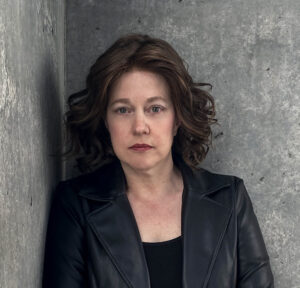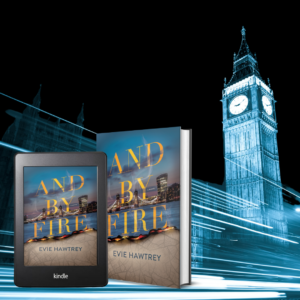 Evie Hawtrey – woman of mystery – describes herself as a Yank by birth but a sister-in-spirit to her fierce and feminist London detective, DI Nigella Parker. Evie splits her time between Washington DC, where she lives with her husband, and York, UK, where she enjoys living in history, lingering over teas, and knocking around in pubs.
Evie Hawtrey – woman of mystery – describes herself as a Yank by birth but a sister-in-spirit to her fierce and feminist London detective, DI Nigella Parker. Evie splits her time between Washington DC, where she lives with her husband, and York, UK, where she enjoys living in history, lingering over teas, and knocking around in pubs.
I’m delighted to welcome this particular guest to my writing blog and include her as an additional arrival to the ‘Writers abroad’ series. Evie is one of a club of historical fiction writers turning to mystery fiction… Over to Evie to explain how helpful all that historical writing is when turning to crime…
For more than a decade I authored novels set in the past. Then I was struck by the idea for a mystery. . . set predominately in the present, and entirely in London (I live in Washington, DC).
Crime . . . I was going to write crime after a decade as a historical novelist. WHAT WAS I THINKING? I didn’t know anything about police procedures, or the forensics involved in determining how long a body had burned by examining it.
I quickly discovered, however, that writing historical fiction was great preparation for working in my new genre, because historical novelists have mad research skills. And research lies at the foundation of most fiction—even if it isn’t the first thing that comes to mind when you’re reading a scene involving an immolated corpse outside London’s Temple Church.
No matter what genre you are writing, here’s a shortlist of historical research methodologies that can help you write it better:
- Use research to understand your novel’s world before you try to build it for readers
You can’t paint a tree if you haven’t seen one. If you want to build an authentic world you must know that world, and research is the way to do that.
Historical novelists routinely immerse themselves in the era and location they are bringing back to life. I have an unnerving number of books on the St. Bartholomew’s Days Massacre and the bound letters of a guillotined French princess on my office shelves courtesy of my incarnation as a historical novelist.
It seems patently obvious that nobody can write a historical novel by personal experience. We don’t have time machines after all. But there are a lot of aspects of contemporary novels—mystery and otherwise—that probably aren’t part of their author’s daily experiences. When those crop up, don’t guess, research.
Research doesn’t mean just using books (though books are great). Get creative. I spent time virtually walking around the London locations that would be my modern-day crime scenes (love that drop in feature on Google maps). I read annual reports reports for the City of London Police to understand how that force operated. I drew the exact boundaries of their territory (1.12 square miles of the whopping 607 square miles comprising Metropolitan London) on a map on my desk. I also read tons of fun on-line articles on British slang.
You get the picture—I immersed myself into the world of my London detective inspectors (down to the view from the windows in DI Parker’s flat), so that I could portray it authentically for readers.

City of London from the top of the Monument to the Great Fire of London Photo: Piotr Zarobkiewicz (CC licence)
- Know when to stop—or at least pause—your research
Historical novelists often learn this the hard way. I know authors who spent a decade researching their first manuscripts. That is NOT a sustainable business model.
You are bound to end up down a research rabbit hole or two when you are working on a book—whether you’re comparing farthingale styles as a historical novelist, or learning about difference between spontaneous combustion and spontaneous heating as a mystery writer. But try to avoid falling all the way in.
Writing a novel is NOT the same as doing a doctoral dissertation. Not in terms of content. Not in terms of timing. And, therefore, not in terms of research. Know when it is time to put down the research books and draft your novel.
- Be ready to resume research on a “need to know” basis
The best writing necessitates research on the go. Historical novelists frequently pause to do additional research while drafting their novels. You can’t anticipate everything you’ll need to know for a three-hundred-page novel at the outset. So, when a corpse turns up at St. Magnus the Martyr, that’s the perfect moment to seek out an evocative architectural details (like a large, black exterior clock crowned with a golden cherub’s face).
- Consult experts
Historical novelists know what they don’t know. We recognize that we are not PhD historians, folks who make historical costumes for a living, or theorbo players. And we are not afraid to reach out to people who are.
Whatever genre you are writing, you don’t have to go it alone. You can tap into the expertise of others.
Most experts—whether in 16th century French court dress or arson—are delighted to talk about what they do, because they love it. Yes, you do have to be sensitive to demands on an expert’s time. So do your basic research before you reach out, then go for it!
While writing my crime debut, I reached out to someone who punched far above my weight—a PhD biological anthropologist who was an expert on-call with police specializing in the analysis of human remains. And guess what? She couldn’t have been nicer or more willing to help me make certain the procedural scenes in my novel read realistically.
As with all research, think outside the box. Not every expert is a PhD. What about a mechanic when you need something to go wrong with a fictional car? Or in my case a group of UK friends who were happy help me achieve an authentically British tone for my characters (and avoid Dick Van Dyke Mary-Poppin’s-like caricature).
You may never write historical fiction, but you can develop the research super-skills of a historical novelist. I promise they will serve you well, as they have done me.
* Yes, I had to look that up! The theorbo is a plucked string instrument of the lute family, with an extended neck and a second pegbox.
———-
Discover more about Evie
Website/blog: https://eviehawtrey.com
Facebook: https://facebook.com/EvieHawtrey
Twitter: https://twitter.com/evie_hawtrey @evie_hawtrey
———-
So what’s And By Fire about?
Two extraordinary female detectives, tempered by fire and separated by more than three centuries, must use their tenacity and intelligence to track a pair of murderous geniuses who would burn the world for their art in Evie Hawtrey’s And by Fire.
 Nigella Parker, Detective Inspector with the City Police, has a deeply rooted fear of fire and a talent for solving deadly arson cases. When a charred figure is found curled beside Sir Christopher Wren’s Monument to the Great Fire of London, Nigella is dragged into a case pitting her against a murderous artist creating sculptures using burnt flesh.
Nigella Parker, Detective Inspector with the City Police, has a deeply rooted fear of fire and a talent for solving deadly arson cases. When a charred figure is found curled beside Sir Christopher Wren’s Monument to the Great Fire of London, Nigella is dragged into a case pitting her against a murderous artist creating sculptures using burnt flesh.
Nigella partners with Colm O’Leary of Scotland Yard to track the arsonist across greater London. The pair are more than colleagues—they were lovers until O’Leary made the mistake of uttering three little words. Their past isn’t the only buried history as they race to connect the dots between an antique nail pulled from a dead man’s hands and a long-forgotten architect dwarfed by the life’s work of Sir Christopher Wren.
Wren, one of London’s most famous architects, is everywhere the pair turn. Digging into his legacy leads the DIs into the coldest of cold cases: a search for a bookseller gone missing during the Great Fire of London. More than 350 years earlier, while looking for their friend, a second pair of detectives—a lady-in-waiting to the Queen and a royal fireworks maker—discovered foul play in the supposedly accidental destruction of St. Paul’s Cathedral…but did that same devilry lead to murder? And can these centuries-old crimes help catch a modern-day murderer?
As Nigella and O’Leary rush to decode clues, past and present, London’s killer-artist sets his sights on a member of the investigative team as the subject of his next fiery masterpiece.
Buy from Amazon UK Amazon US Kobo Barnes & Noble
———-
“Bones meets the Restoration Court in Evie Hawtrey’s And By Fire, a taut dual-timeline mystery that races along at the pace of an inferno! I couldn’t put this one down!” — Kate Quinn, New York Times Bestselling Author of The Alice Network
Alison Morton is the author of Roma Nova thrillers – INCEPTIO, CARINA (novella), PERFIDITAS, SUCCESSIO, AURELIA, NEXUS (novella), INSURRECTIO and RETALIO, and ROMA NOVA EXTRA, a collection of short stories. Audiobooks are available for four of the series.Double Identity, a contemporary conspiracy, starts a new series of thrillers. JULIA PRIMA, a new Roma Nova story set in the late 4th century, will be out on 23 August.
Find out more about Roma Nova, its origins, stories and heroines and taste world the latest contemporary thriller Double Identity… Download ‘Welcome to Alison Morton’s Thriller Worlds’, a FREE eBook, as a thank you gift when you sign up to Alison’s monthly email update. You’ll also be among the first to know about news and book progress before everybody else, and take part in giveaways.













[…] Interested in my shortlist of historical research methodologies that can help you write it better? Click here. […]